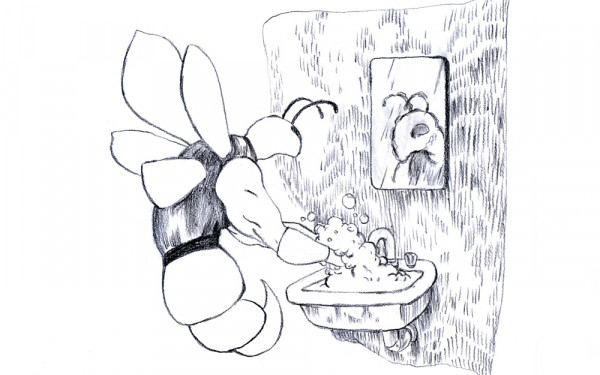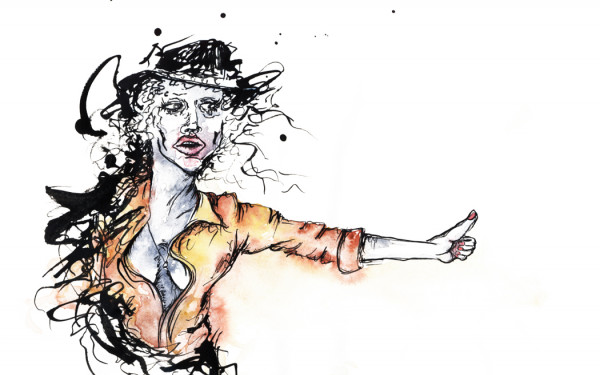The Problem With Consent in Movies
Movies Have Normalized Toxic Behaviour for Too Long
I often hear people say something like “media holds up a mirror to society.”
We may often take such a statement for granted, despite the truth it alludes to. We aren’t always critical of what films and TV are communicating to us, even when the lessons we learn from them can be problematic.
From Han Solo, to James Bond, to Indiana Jones, to Batman, male protagonists often exude extreme self-confidence and tackle their problems head-on, usually violently.
They are financially, socially, and romantically proactive, using any wealth or expertise they possess to take charge of any situation. Quick-thinking, they use their intelligence to approach obstacles while maintaining a stoic fixation on their goals.
Frequently, this rationality is equated with a tall, muscular physical appearance, and sometimes short hair befitting of a well-groomed visage, and an accentuated jawline.
These men, through their acts of heroism, may often be rewarded by getting with the female lead at the end. Keep in mind, these are the types of characters young boys ought to aspire to be according to these movies. But what happens when male protagonists in fiction, for some reason or other, are unable to obtain the object of their affections?
Perhaps the female character is already in a monogamous relationship. Perhaps she is simply not interested, or has already turned down advances that were made in the past. What happens when our male hero’s romantic or sexual attraction is not reciprocated?
According to the male role, our hero should never give up. He should pour all of his energy and resources into pursuing the woman he loves. Indeed, this is what we see play out in a large number of films.
Take the 1989 classic romantic comedy Say Anything….
In the film, John Cusack’s character, Lloyd, has a passionate romantic relationship with the woman whom he loves, Diane. Unfortunately, the relationship is terminated by Diane, and she ignores his phone calls.
Rather than seeking to move forward, Lloyd arrives at Diane’s home, boombox in hand, during the dead of night and plays the song they listened to while having sex for the first time. Although the film frames this as a grand gesture of love, if one were to do something like this in real life, it would not only be extremely creepy, it’s the sort of thing a stalker would do.
There’s also an element of manipulation when the male protagonist makes his affectionate feelings public, like in the 1999 teen comedy film 10 Things I Hate About You.
Here, the grand gesture of love is hijacking a loudspeaker for some surprise singing. What at first might seem adorable is clearly a complicated trap for the woman in question.
The public nature of these grand gestures put women on the spot, and makes it so that they would appear the villain if they were to decline.
Growing up, this ideology of never relenting in the pursuit of your goals seems to make sense. We are constantly told to chase our dreams and follow our hearts.
This determination is ambitious, even noble. In general, it is a good lesson to teach our children. Why then is a romantic pursuit any different?
When we hold a romantic or sexual interest in another human being, it involves another human being. Love is a multiplayer game.
Our goals in the pursuit of love are not mere objectives that we desire. Be they romantic, sexual, or otherwise, such goals necessarily involve the intimate connection we forge alongside that other person.
Unfortunately, this cooperative quality of love is lost on many popular Hollywood films. Romantic comedies are not the only offenders of this either.
One often overlooked aspect of the beloved 1976 sports film Rocky, is the way the protagonist treats his love interest, Adrian, in the film. Despite her repeated statements of discomfort being in his apartment alone with him, our protagonist physically intimidates her. After refusing to let her leave, they end up kissing.
Again, the film plays this off as romantic, but the same scenario in reality would be a case of assault. The problem then, is that these portrayals of romance normalize what would otherwise be considered deplorable behaviour.
Too often are women in cinema framed as objects of desire for male characters.
The unrelenting vigor, with which male characters pursue these women, is also too often framed as cute and virtuous. After all, our male hero is doing it out of love.
Take the beloved character Han Solo for instance. His courtship of Princess Leia in 1980’s The Empire Strikes Back is framed, and too often cited, as romantic. However, if we examine the interactions between them critically, we will see many signs of predatory behaviour on the part of Han Solo.
Throughout the film, Leia overtly rejects Han’s advances on her. She consistently tells him she does not like him, tells him to stop, calls him a scoundrel, and generally contradicts his advances at every turn. Even Leia’s body language towards Han magnifies her disinterest in him.
This points to the larger issue of how male characters seeking romance take rejection to instead mean something like try again later or maybe someday.
Moreover, the women in these scenarios, much like Leia in the example, are irritated or even aggravated by the entitled behaviour of the man pursuing them, but those feelings, alongside the lack of consent, are frequently ignored by our Hollywood male hero.
When our male hero refuses to stop pursuing the person whom he is courting after being rejected, he is in effect invading her life, and in some cases, outright violating her personal space. His refusal to listen to the female character’s words and signs is indicative of being unpleasant at best, and outright mentally unstable at worst.
This issue hasn’t vanished unfortunately. Male protagonists can still be found ignoring women’s consent in contemporary films. For instance, 2015’s James Bond film Spectre continues to perpetuate dangerous ideas about courtship by having Bond, much like Lloyd and Rocky in their respective films, blatantly ignore rejection.
In the real world, refusing to acknowledge consent when dealing with people who you are (or would like to be) romantically or sexually involved with can lead to domestic abuse and sexual violence. But if our male protagonist puts the woman he likes in these types of predatory scenarios, he is framed as being right to do so out of love.
Indeed, if their romantic or sexual feelings towards each other have been openly affirmed, or they are already dating, these gestures could be positive. Unfortunately, such a scenario is not analogous to the way Hollywood films generally portray courtship.
Informed by those predatory instances of romance in films, a woman being courted may feel as though she owes this man a relationship, or she may have been publicly pressured by grand gestures into saying yes. In either case, there is an element of manipulation in the way that the man has acted.
But following the Hollywood mold, this manipulation is very typically of no consequence. In these examples, we can see how the traditional accounts of masculinity, coupled with Hollywood’s typical portrayal of courtship, can undermine a woman’s autonomy.
This problem of aggressive male behaviour has also been substantial enough to warrant academic studies, including one by Julia Lippman with the chilling name I Did It Because I Never Stopped Loving You: The Effects of Media Portrayals of Persistent Pursuit on Beliefs About Stalking.
In the end, predation, manipulation, obsession, infatuation, and attraction are a few ways which our traditional masculine heroes evoke as a means to obtain their ends of love.These are contrary to the ways in which relationships should function in real life. Yet, both in real life and in movies, these actions occur regularly and often with few or no consequence for the perpetrator.
The stalker-like tactics our male heroes use to land in the arms of the women they seek should land any real-life person committing these actions in jail, but that isn’t the end result often enough.
In real life, stalking and sexual assault don’t have happy endings.






_600_375_90_s_c1.jpg)